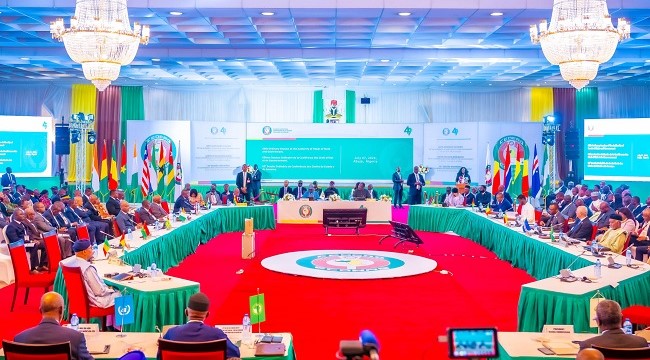Summit Agenda Set Against Background of Departures
West African leaders from the Economic Community of West African States (ECOWAS) are convening in Abuja, Nigeria, on Sunday, focusing on regional security and the implications of Burkina Faso, Mali, and Niger’s decision to leave the bloc. The three countries have described their withdrawal from ECOWAS as “irreversible,” criticizing the organization for its perceived allegiance to France, their former colonial power.
Impact on Regional Cooperation
The exit of these nations could significantly disrupt free trade, movement, and security cooperation in a region increasingly threatened by jihadist insurgencies. The absence of these countries, all currently under military governance due to recent coups, underscores the challenges ECOWAS faces in maintaining regional stability.
Mediation Efforts and New Alliances
Senegal’s President Bassirou Diomaye Faye, who was appointed mediator by ECOWAS in July, has reported “progress” in dialogues with the departing states. Despite their firm stance, Faye advocates for continued relations, particularly in light of the security issues plaguing the Sahel. The three countries have also established the Alliance of Sahel States (AES), aligning closer with Russia after cutting ties with France.
Official Statements and Meetings
While the three states did not confirm attendance at the Abuja summit, they convened a separate ministerial meeting in Niamey, Niger, where they reiterated their commitment to exiting ECOWAS in a manner beneficial to their populations.
ECOWAS Sanctions and Military Tensions
Tensions escalated after ECOWAS threatened military intervention following the coup in Niger in July 2023, leading to severe sanctions against the country. In response, ECOWAS lifted some sanctions in March to foster dialogue, particularly concerning the situation of ousted President Mohamed Bazoum.
Security Cooperation Amidst Political Shifts
Recent efforts to maintain security cooperation include a meeting between Nigeria’s top military commander and Niger’s army chief, focusing on enhancing communication and joint operations in border areas. Meanwhile, Guinea, another ECOWAS member under military rule since a 2021 coup, has been unable to meet its commitment to hold elections by the end of 2024, adding to the regional political instability.
This summit serves not only as a platform for addressing the immediate security concerns but also as a critical juncture to reconsider the structure and future of ECOWAS in light of these significant shifts in regional alliances and governance.










